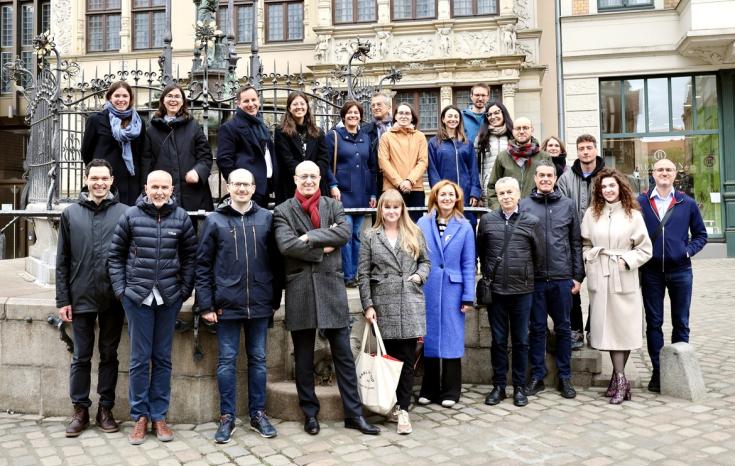GreenGov first partner gathering in Hanover
On April 16th and 17th, the Lower Saxon Ministry for Federal and European Affairs and Regional Development based in Hanover (Germany) hosted the Kick-off Meeting of GreenGov (GREEN finance and Do No Significant Harm principle implementation for a better regional GOVernance).
At the meeting were present delegations from each project partner: Ile-de-France Region (France), Lisbon Metropolitan Area (Portugal), Lombardy Region (Italy), Regional Development Agency South-West Oltenia (Romania), Lower Saxon Ministry for Federal and European Affairs and Regional Development (Germany), Brussels-Capital Region (Belgium), North-West Regional Development Agency (Romania), South Moravian Agency for Public Innovation JINAG Association (Czech Republic) and Consorzio Poliedra (Italy), a research center from the Polytechnic University of Milan in the role of Advisory Partner.
In Hanover the partners started collecting different perspectives and experiences on the project topics by working in groups. The Do No Significant Harm principle, climate proofing of infrastructures, energy efficiency and climate adaptation were the primary focus of the discussion on how to design a common and robust process to adapt regional and local strategies to the EU Taxonomy framework. A challenging goal that the partners plan to reach through the exchange of good practices and the creation of guidance to support capacity building and awareness raising on green finance mechanisms.
“Funding programs too often scare potential project partners away from the right cause with high hurdles or false incentives – said Lower Saxony's European Minister Wiebke Osigus, while appreciating GreenGov’s approach during her visit at the project meeting. – This endangers the diversity of our programs. Good regional policy needs practical solutions. I am therefore looking forward to the results of this European collaboration.”
The project immediate next steps will include the submission of a survey on the “State of play of green finance” to the partners and some of their stakeholders, to gather as much data as possible from where to begin to work in autumn, when the partnership will gather again this time in Craiova (Southwest Oltenia, Romania). In the following phases of the project, the partners will also put their guidance into practice to explore green budgeting, using the tools of budgetary policymaking to help redirect their investments towards sustainable priorities, develop regional green bonds frameworks and other innovative financial instruments to achieve environmental goals.
The project will last four years until 2028.

